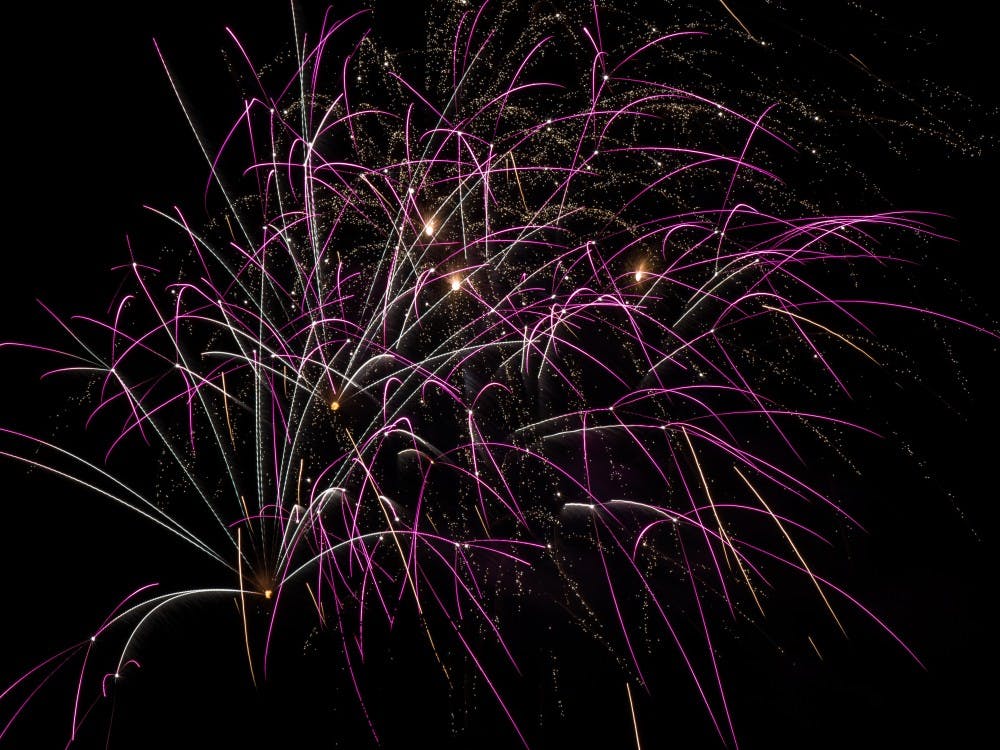While patrolling the streets of Baghdad, Jessica Robinson became familiar with the constant sounds of bullets hitting the Humvees she sat in.
Robinson, a criminal justice major, enlisted in the Army National Guard in 2005, serving as a military police officer after 9/11.
"I wanted to do something more, something that not everybody else does," she said. "I wanted to feel like I was helping in some way."
She is one of 21.8 million veterans in the United States, according to the U.S. Census Bureau in 2010.
College veterans face many challenges after returning from war. To help offset the hardships, Ball State's Student Veteran Organization was established in 2009 to build a community of veterans to help one another toward a college degree.
"We try to push for veterans to know that people are out there to help them and to give them that camaraderie they're used to," Alejandro Tamez, a Navy veteran and computer science major, said. "If there's a veteran that has issues, we can get them help."
The organization has about 30 veterans that regularly attend events, but the number of veterans on campus is about 400 people, more than Indiana University or Purdue University, Tamez said.
For veterans in college, it is difficult to relate to students because many of them haven't had the same life experiences.
"I try to be pretty open about my experiences and things like that because I look at it as something I can teach other people about," said Cory Chapman, a sergeant in the Marines and music education major. "I forget sometimes that these are younger people than me and they don't have the same experiences as me."
When Chapman enlisted in 2006, he said 9/11 didn't really affect his decision but he knew he would be going to war. Six years later, he wants students to know that veterans are approachable people.
"We are just normal people," he said. "I'm like this, and I know a lot of other veterans are like this, and we don't mind talking about our experiences. That's one reason I think students are a little more reluctant to come up and talk to us because they don't know what to say."
With post-traumatic stress disorder a real concern for veterans, Robinson said students don't need to be afraid of those who have served.
"We aren't all going to just randomly freak out on you," she said. "That is something people are scared of. We are normal people."
In addition to PTSD, some college veterans have a difficult time with crowds from their war experiences.
"If I go into a crowded store or crowded area, it's like an anxiety of mine now," Tamez said. "It's something I still cope with. I use music to help calm me."
Readjusting to a non-war zone, as well as to family and friends, is a real challenge for these students when they first arrive back home and even years after.
"My family treated me different, my friends treated me different," Robinson said. "You don't come back to the same life you left, so it's [about] readjusting to the new life."
After living through war, some veterans have a hard time understanding the everyday problems of students.
"For the first year, almost, [it] was getting used to the fact that other people have problems that aren't as severe as what you might have faced, but you still have to empathize with them because that's your job as a person," Chapman said. "My first couple weeks here, I heard people complaining about an 8 a.m. class, and I'm like, 'at least you're not getting shot at.'"
Besides trying to relate to other students, veterans have to deal with what they did and what they saw while overseas.
"People don't understand why you are so grief-stricken, you should be happy it wasn't you, but you're not," Robinson said. "You don't want anybody to die. It could have been you, and then you feel bad because it wasn't you."
Tamez encourages students to try to understand veterans.
"If you're a regular student, and you know a veteran that has issues, just be there as an ear, as a friend," he said.
Looking back 11 years later, Chapman remembers the America that rallied together after the terrorist attacks in New York City.
"Nobody was a Democrat or a Republican, everybody was just an American," he said. "And now we are back, 11 years later, to the partisan bickering back and forth. People seem to have forgotten how good this country can be when it's behind one single goal or cause."
The shock is still here today for Tamez; he remembers what he saw that day and knows what it means for the country now.
"I watched the planes and the towers, and saw the people falling out of the buildings," he said. "We need to remember what happened and we are where we are now because of it."




